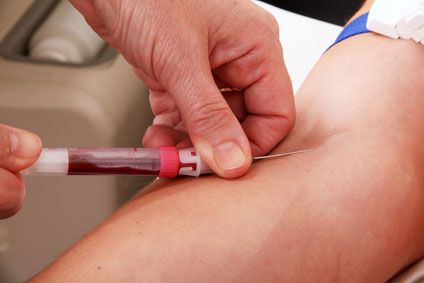
(Vienna, 21 October 2016) Giving a stem cell donation at the Department of Blood Group Serology and Transfusion Medicine at MedUni Vienna and Vienna General Hospital takes a maximum of six hours – six hours that could save lives. This Friday, the stem cell donor register, which was previously based in the 8th district and was operated as a charitable fund, was reopened at MedUni Vienna/Vienna General Hospital, with improved facilities for patients and donors. A total of 66,000 people in Austria are registered as potential donors, 46,000 of these on the Vienna donor register. This number is expected to increase. Every year, around 200 patients in Austria and 17,000 patients in Europe are helped with allogeneic stem cell donations.
Stem cell donation is predominantly used for patients with malignant diseases of the blood-forming system – principally in cases of acute leukaemia but also for lymphomas and myelomas. "Every single donation helps and can save lives", explains Agathe Rosenmayr, Project Manager of the donor register at MedUni Vienna. In 2015, more than 2,000 new donors registered in Vienna, each stem cell donor screening costing 50 euros. The government pays for 240 screenings and the rest are financed by private sponsors.
What does stem cell donation involve?
After the potential donor has signed an informed consent form, blood samples are taken. 14 tissue markers are determined from the hereditary material. Every potential donor is then entered onto the international database incorporating almost 30 million possible donors and remains there until they reach the age of 55. Essentially new donors are only accepted between the ages of 18 and 45, so long as they are completely healthy and neither underweight nor overweight.
If a match is found between a potential recipient and a registered donor, the donor is asked to sign a new informed consent form. If they are still willing to donate and all preconditions are still met, the donor comes to MedUni Vienna/Vienna General Hospital and, over a period of 4 to 6 hours, blood is taken from them via a computer-controlled apheresis machine and the stem cells extracted from it. Plasma and blood cells are returned to the donor. For a few days prior to donation, donors take a drug that stimulates production of stem cells in the blood. The donation is completely anonymous.
"It is now possible to provide stem cell donors with professional care under optimum conditions. Doctors and nursing staff are available round the clock to answer any questions, so that there is a cohesive network for all patients and all those who want to help with their donation," emphasises Gabriela Kornek, Medical Director of Vienna General Hospital.
Information for anyone interested or potential sponsors is available via the stem cell donation telephone number: 0664 / 522 35 71 or on the website www.stammzellspende.cc.